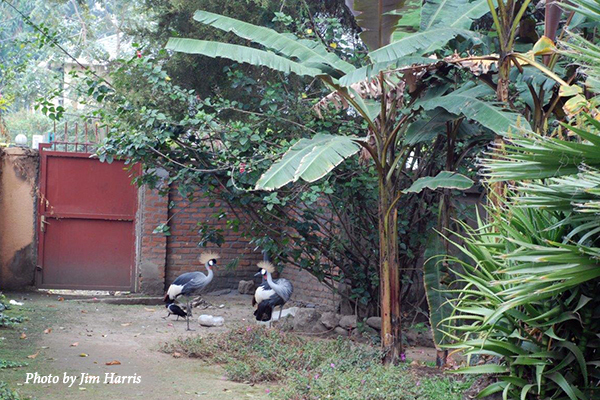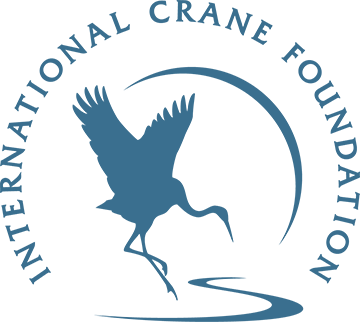
Dear Friends,
I hope this message finds you safe and healthy as we continue to weather the impact of the COVID-19 pandemic on our public health, well-being and economy. All of our International Crane Foundation staff, interns and partners remain healthy at this time, although the global shutdown is causing hardships for many on our team around the world.
One of the silver linings I see during these challenging days is the global attention now focused on wildlife markets and illegal trade as a threat to human health. The impact of illegal trade on wildlife is well-known—the demand for ivory, powdered horn and scales, and fins for soup has devastated wild populations of elephants, rhinos, pangolins and sharks. Millions of wild birds are smuggled illegally and traded on the black market to meet the demand for the pet trade. More than one-third of all bird species have been victims of international trade, including all fifteen species of cranes.
At the International Crane Foundation, we have worked hard to expose the impact of illegal trade on the survival of the beautiful crowned cranes of Africa. In West Africa, our studies found that nine Black Crowned Crane chicks die for every crane captured for local domestication or sale abroad. We have partnered with Dr. Olivier Nsenginama and the Rwanda Wildlife Conservation Association to confiscate illegally held cranes, rehabilitate the birds in veterinary facilities, and release them back into the wild at Akagera National Park.
We intercepted requests from wildlife collectors in Asia seeking shipments of as many as 500 cranes from the wild. We worked through the Convention on International Trade in Endangered Species to investigate and suspend trade from many African countries. All of this has undoubtedly helped, but illegal trade still looms large.
The COVID-19 crisis is now raising a powerful new global awareness: our lives may depend on stopping illegal trade.
More than 75% of all new infectious diseases have their origins in animals, many of them linked to wildlife markets. Last week, I participated in a bi-partisan briefing by the U.S. Congressional Caucus on wildlife trade, origins of COVID-19 and preventing future pandemics. Government leaders, business executives, law enforcement agents and many of the world’s non-profit directors joined together in calling for urgent actions and significant investments to prevent and mitigate future global pandemics by curtailing wildlife trade.
Likewise, there is a growing understanding that the loss and fragmentation of our natural world—which puts wildlife in ever-closer contact with people— is a major factor in the spread of zoonotic diseases (diseases that can be transmitted from animals to humans) like COVID-19. Protecting nature is essential to protecting people.
Let’s seize on this window of heightened awareness and opportunity to reduce the risk of another global pandemic by bringing an end to illegal trade and securing critical wildlife habitat. Please urge your elected representatives that now is the time to strengthen and enforce regulations to stop trafficking and end the import of illegal wildlife products. Support efforts to protect and restore the wetlands, grasslands and other ecosystems that provide a safe harbor for our rich biodiversity. Encourage meaningful livelihood alternatives for our most vulnerable communities that depend on natural resources for their survival.
You can learn more about our efforts to Stop the Illegal Trade of Africa’s Iconic Crowned Cranes HERE. If we join together to stop illegal trade and curb the loss of wildlife habitat with the same global commitment we are making to combat the COVID-19 crisis, we can make a real difference for cranes and all life on Earth.

With best wishes,
Rich Beilfuss
President and CEO
